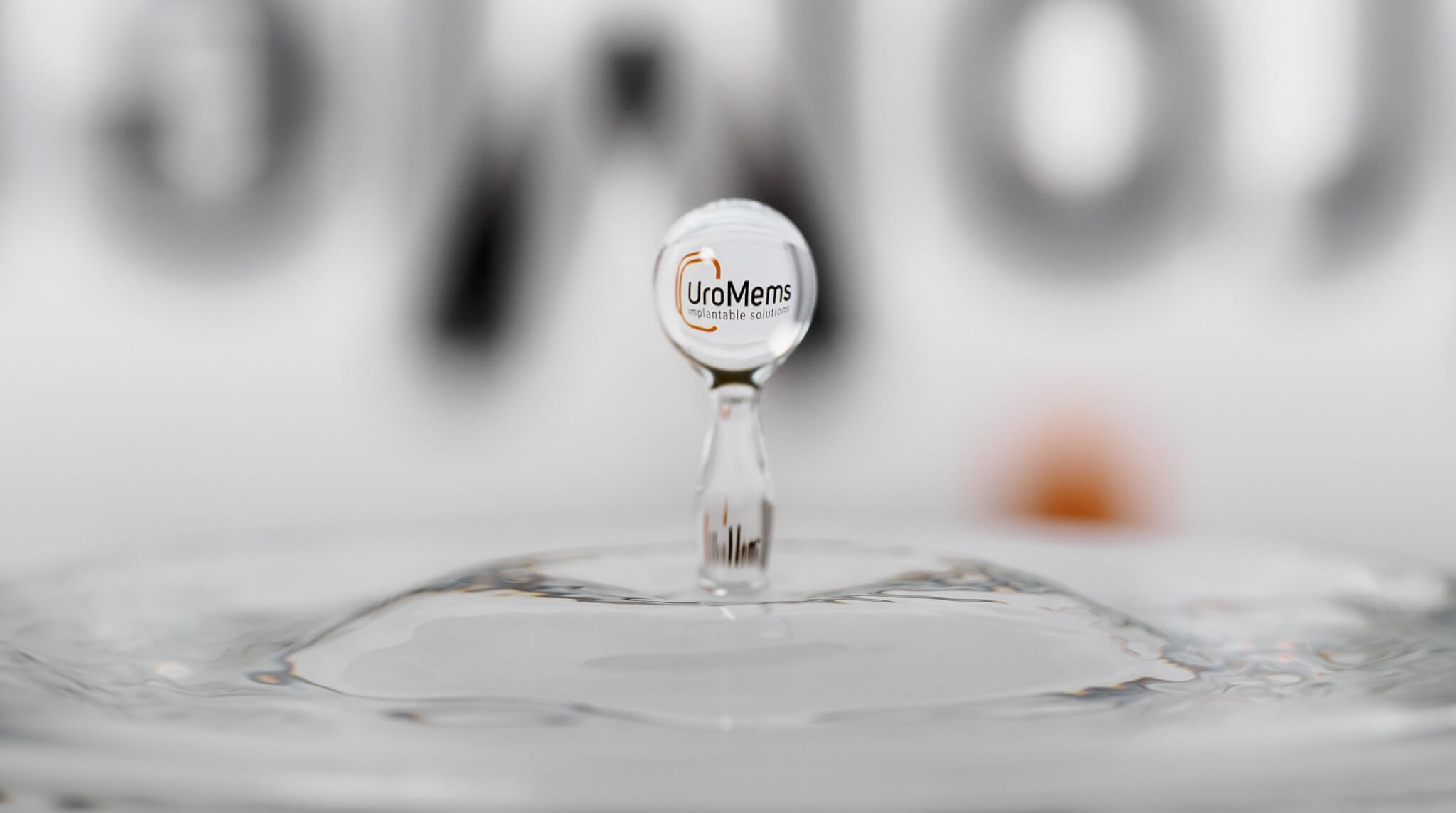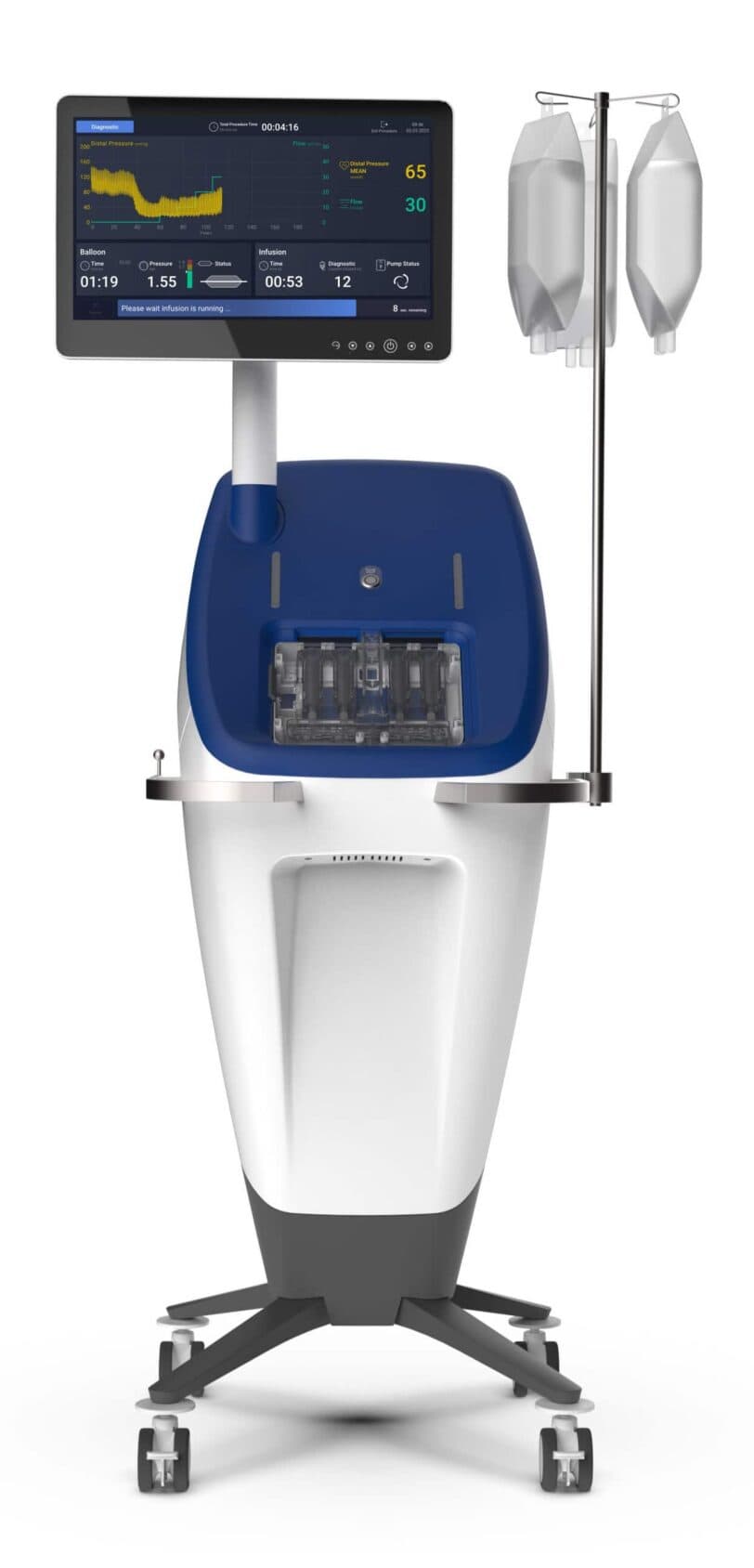UroMems Receives Clearance from the FDA and the French ANSM for Initiating Landmark Pivotal Clinical Study of UroActive® Smart Implant to Treat Male Stress Urinary Incontinence
DE approval in both countries follows strong feasibility clinical results in France
GRENOBLE, France and MINNEAPOLIS, July 17, 2025 /PRNewswire/ -- UroMems, a global company developing innovative, mechatronics technology to treat stress urinary incontinence (SUI), received investigational device exemption (IDE) approval from the U.S. Food and Drug Administration (FDA) and French National Agency for the Safety of Medicines and Health Products (ANSM) clearance, enabling the company to begin a first-of-its-kind pivotal clinical trial of the UroActive smart implant to treat stress urinary incontinence (SUI) in men.
This prospective, multicenter trial, called the SOPHIA2 study, will evaluate the safety and efficacy of the UroActive System, the first smart automated artificial urinary sphincter (AUS) for the treatment of SUI. The FDA IDE approval and ANSM clearance follow strong feasibility study results for both women and men in France.
"This marks a key milestone that has been more than a decade in the making, and brings us a significant step closer to delivering the relief from symptoms and return to life that UroActive has the potential to provide patients suffering from SUI," says Hamid Lamraoui, UroMems chief executive officer and co-founder. "UroActive is the first and only smart automated AUS to reach this critical milestone, indicating a new era for millions of people suffering from SUI, while signaling an exciting transition for surgeons treating SUI across the U.S. and Europe."
UroActive is powered by a MyoElectroMechanical System (MEMS). This innovative system is placed around the urethral duct and is controlled based on the patient's activity, without the need for complex manipulation, intending to provide patients with ease of use and a better quality of life than current options.
Co-principal US investigators include Dr. Melissa Kaufman, FPMRS, professor and chief reconstructive surgery at Vanderbilt University in Nashville and Dr. Drew Peterson, FPMRS, professor at Duke University in Durham, NC. "We have seen first-hand the shortcomings of current SUI treatment options for our male and female patients," said Dr. Kaufman on behalf of both co-principal investigators. "That's why we're so excited to be leading the SOPHIA2 trial, as it's showing promise to provide significant improvements in addressing these issues. Based on the feasibility study data we've seen, UroActive has the potential to be a transformational technology."
"We've seen exceptionally strong results for both men and women in France as part of the feasibility clinical study, including over one year with no need for revision nor explant and extremely high praise from patients who had been suffering from SUI for years," said Professor Emmanuel Chartier-Kastler, Urology Chair, Sorbonne University and Pitié-Salpêtrière Hospital in Paris. "We look forward to conducting the pivotal SOPHIA2 study in France in lock step with the U.S. sites."
SUI, or involuntary urinary leakage, affects an estimated 40 million Americans and 90 million Europeans. SUI significantly impacts quality of life, as it can be debilitating, and often leads to depression, low self-esteem and social stigma.
SOPHIA2 study will serve as the basis for UroMems' regulatory submission to the FDA and supports its broader strategy to commercialize UroActive in the U.S. and European markets.
About UroActive
The UroMems technology platform is protected by more than 180 granted patents and is designed to overcome the limitations of current solutions by optimizing safety and performance, patient experience and surgeon convenience. UroActive is the first active implantable electronic artificial urinary sphincter (AUS) that is being developed to compensate for sphincter insufficiency in patients, both men and women, with SUI. It is based on a unique mechatronic platform using embedded smart, digital and robotic systems. UroActive has not received marketing authorization from the FDA and is not available for sale in the United States or in the EU. This project is financially supported by the European Innovation Council and France 2030.
For more information, please visit www.uromems.com.
Media Contact:
Shelli Lissick
651-276-6922
Wellington Partners Co-Leads €84 Million Series B Financing of Nuclidium to advance its Copper-based Radiopharmaceutical Platform
NUCLIDIUM Closes CHF 79 Million (EUR 84 Million) Series B Financing to Advance Clinical Development of its Copper-based Radiopharmaceutical Platform
- Proceeds will fund further clinical development of the company’s true theranostic pipeline and expansion of the global production and manufacturing network for copper-based radiopharmaceuticals.
- Initial clinical data presented at SNMMI 2025 by Dr. Gary Ulaner, MD, PhD show a solid safety profile and potentially improved performance of 61Cu-NuriPro in metastatic prostate cancer imaging.
- The financing round was led by Kurma Growth Opportunities Fund, Angelini Ventures, Wellington Partners, and Neva SGR (Intesa Sanpaolo Group), with participation from DeepTech & Climate Fonds (DTCF), Bayern Kapital, Eurazeo, Vives Partners, NRW.BANK and HighLight Capital, with existing investors.
- Alongside Tony Rosenberg, who recently joined as the Chairman of the Board of Directors, David Meek joins as an additional new Independent Director; Oliver Sartor, MD and Bela Denes, MD join as additional Scientific Advisors.
Basel, Switzerland / Munich, Germany, July 10, 2025 – NUCLIDIUM AG, a clinical-stage radiopharmaceutical company developing a proprietary copper-based theranostic platform, today announced the successful closing of its Series B financing round, raising CHF 79 million (EUR 84 million). The round was led by Kurma Growth Opportunities Fund, Angelini Ventures, Wellington Partners, and Neva SGR (Intesa Sanpaolo Group), with participation from DeepTech & Climate Fonds (DTCF), Bayern Kapital, Vives Partners, Eurazeo, NRW.BANK and HighLight Capital, as well as existing investors. The proceeds will be used to advance the clinical development of NUCLIDIUM’s Copper-61/Copper-67 (61Cu/67Cu) theranostic pipeline across multiple oncology indications. In parallel, the company will expand its production and manufacturing capabilities through a global production network.
NUCLIDIUM’s differentiated platform links tumor-targeting molecules with copper isotopes – Copper-61 for diagnostics and Copper-67 for therapeutics – to address current limitations in radiotheranostics, such as suboptimal clinical efficacy and complex manufacturing. Diagnostic results from initial clinical trials in these indications show superior lesion detection and higher tumor-to-background ratios compared with clinically approved tracers. Initial data were recently presented at SNMMI 2025 by Dr. Gary Ulaner, MD, PhD highlighting a favorable safety profile and potentially improved imaging performance of 61Cu-NuriPro™ compared to current PET imaging standards, suggesting strong clinical promise and broader potential for 61Cu/67Cu theranostic pairing. Early therapeutic data from the two lead compounds, NuriPro™ and TraceNET™, show strong tumor-to-background ratios in metastatic prostate cancer and neuroendocrine tumors including breast cancer.
“NUCLIDIUM is entering the next clinical phases with its lead compounds to diagnose and treat metastatic prostate, neuroendocrine tumors and breast cancer,” said Leila Jaafar, PhD, CEO and Co-Founder of NUCLIDIUM. “Our copper-based radiotheranostics are developed for seamless use in hospital workflows, care delivery and waste management, making these therapies more accessible worldwide. Our groundbreaking next generation copper theranostic platform also allows us to rapidly develop new targets across a wider range of cancers, particularly those highly relevant to women’s health.”
With this financing, NUCLIDIUM will continue expanding its worldwide production and manufacturing network for diagnostics and therapeutics, growing its international team, and strengthening strategic collaborations with hospitals and academic centers, initially across Europe and North America.
In conjunction with the financing round, Daniel Parera, MD, Partner at Kurma Partners, Regina Hodits, PhD, Managing Director at Angelini Ventures, and Liliana Nordbakk, Partner Life Sciences at Neva SGR, will join NUCLIDIUM’s Board of Directors.
“This significant Series B financing reflects the confidence of our investors in NUCLIDIUM’s vision and the transformative potential for the diagnostic and therapeutic industry in oncology and nuclear medicine,” said Tony Rosenberg, Chairman of the NUCLIDIUM Board. “With this backing, we are positioned to accelerate clinical development, broaden patient access globally, and reinforce our commitment to innovation in precision oncology. I am delighted to welcome our new Board and advisory members, whose deep expertise will further strengthen NUCLIDIUM’s leadership in radiopharmaceuticals.”
“NUCLIDIUM’s platform stands out in a rapidly evolving field and will change how radiotheranostic care is delivered. This investment reflects our strong conviction in the future of precision medicine and our belief in NUCLIDIUM’s potential to scale as a next-generation company — an ambition shared across a strong European syndicate,” added Daniel Parera, MD, Partner at Kurma Partners, Regina Hodits, PhD, Managing Director at Angelini Ventures, and Liliana Nordbakk, Partner Life Sciences at Neva SGR for all participating investors.
The Series B financing transaction was advised by VISCHER AG, and Walder Wyss, Switzerland as legal counsels.
About NUCLIDIUM
NUCLIDIUM AG is a clinical-stage biotechnology company pioneering the development of next-generation copper-based radiopharmaceuticals for the diagnosis and treatment of cancer. Leveraging copper isotopes – Copper-61 for diagnostics and Copper-67 for therapeutics – NUCLIDIUM is creating a differentiated platform with the potential to overcome existing limitations in radiotheranostics. The company's operations in Switzerland and Germany combine innovative chemistry, deep clinical expertise, and strategic manufacturing capabilities to deliver scalable, accessible, and clinically superior theranostic solutions to patients worldwide. NUCLIDIUM is committed to expanding the reach and efficacy of radiotheranostics, including addressing critical unmet medical needs in oncology and women’s health.
For more information, please contact:
NUCLIDIUM
Leila Jaafar, PhD, CEO
Email:
Investor/Media Contact NUCLIDIUM
Trophic Communications
Stephanie May
Email:
Phone: +49 171 1855682
CorFlow Therapeutics Announces FDA Approval of the MOCA-II IDE Pivotal Trial to Validate a Novel Heart Attack Care Technology
CorFlow Therapeutics Announces FDA Approval of the MOCA-II IDE Pivotal Trial to Validate a Novel Heart Attack Care Technology
BAAR, Switzerland--(BUSINESS WIRE)-- CorFlow Therapeutics AG (CorFlow), a pioneering company in the field of cardiac care targeting microvascular disease, today announced that the U.S. Food & Drug Administration (FDA) has approved the company’s technology for investigational device exemption (IDE), which allows the pivotal clinical trial to begin at U.S. hospitals. CorFlow will now prepare these clinical trial sites to receive CorFlow systems, undergo training and begin enrolling patients being treated for heart attacks.
The IDE Pivotal Trial, MOCA-II, is intended to prospectively validate the diagnostic accuracy of the proprietary CorFlow CoFl system in determining the presence or absence of microvsacular obstruction (MVO) during a primary PCI procedure. The primary endpoint compares the CoFI diagnostic reading to a reference standard of diagnosis by a cardiac MRI scan. The trial is approved to enroll over 200 STEMI patients at prestigious research institutions in both the United States and Europe.
Having successfully completed the first-in-human MOCA-I trial in 2024, the MOCA-II study is the next critical step to bringing this unique technology into the hands of interventional cardiologists globally for the rapid diagnosis of MVO in heart attack patients. This in turn can enable new treatments and care pathways to the large MVO patient population with high rates of adverse clinical outcomes today. The CorFlow technology is designed to both diagnose MVO, plus serve as a localized drug delivery system for diagnostic and therapeutic agents, which is being researched independently.
According to the US government Centers for Disease Control and Prevention, someone has a heart attack every 30 seconds in the USA, with about 800,000 cases reported annually in the country. Incidence and prevalence are similarly high in Europe. More than half of STEMI heart attack patients are shown to have MVO, and previous research has demonstrated that the presence of MVO is a major driver of adverse events. Currently, there are no technologies approved to diagnose MVO during an acute coronary intervention, and there are no approved therapeutic devices that specifically address MVO in the United States or Europe. Heart attacks and related heart disease remains a leading cause of death and disability worldwide.
Paul Mead, CEO of CorFlow, said “The long history of interventional cardiology and heart attack care breakthroughs - going back over 100 years – is one of the great success stories of medical care progress, but the pioneers and luminaries of the field all agree that the work is unfinished. The majority of acute STEMI survivors have MVO, and current outcomes for these patients are shockingly poor. We aim to bring this issue to light and show you can do something about it. This milestone brings us all one step closer to delivering on the promise to improving care for these people where we know we can do better.”
MOCA-II is being led by world-renowned experts in heart attack care, Dr. Timothy Henry at The Christ Hospital in Cincinnati, Ohio (United States) and Professor Marco Valgimigli at Cardiocentro Ticino Institute, Lugano (Switzerland), who collectively have been published in over 1000 peer-reviewed manuscripts in cardiovascular research.
Dr. Tim Henry said “As an interventional cardiologist involved for decades in managing and researching STEMI patients, I am excited to get going on this pivotal trial with technology that could make such a significant impact to the outcome of our patients. I believe strongly that knowing with high confidence who has MVO at the point of care during a primary PCI procedure can make an immediate difference in how we manage our patients”. Professor Valgimigli added “Having played a significant part in MOCA-I first in human trial, I am thrilled to see the second-generation technology now available for the pivotal trial and am looking forward to contributing further to the scientific understanding of MVO in real time. While the medical community has diverse opinions on how to treat these patients, there is no question that proper diagnosis is the first step we need. I am optimistic that getting the CorFlow technology approved for everyday use by our peer interventional cardiologists can help move the field forward.”
About CorFlow Therapeutics: Headquartered in Baar, Switzerland, with subsidiary operations in both Italy and the United States. The company is venture capital funded with an international VC firm syndicate, most recently with a Series B financing round announced in September 2024. CorFlow aspires to be the leader in diagnostic and therapeutic solutions for restoring healthy microvascular blood flow anywhere in the human body where a critical need exists. Working in close partnership with scientists from the University of Bern, ETH Zurich and the University Hospital Zurich, in a collaboration funded by the Swiss Innovation Agency (Innosuisse), CorFlow continues to explore applications for the unique patented technology.
Media and Scientific Contact
CorFlow Therapeutics AG


